
SEO Specialist
.jpg)
Want to know how generative AI can boost your website traffic? This article breaks down how generative AI can help your SEO strategies for better online visibility and engagement.
A good SEO strategy is key in today’s digital landscape. SEO not only increases organic traffic but also user experience, brand credibility and competitive advantage. The goal of any SEO strategy is to increase visibility and ranking on search engine results pages (SERPs) so potential customers can find your business and understand the seo and the seo basics.
In the ever changing search algorithm landscape, staying ahead requires more than traditional SEO practices. This blog post explores how generative AI is changing SEO strategies and how businesses can use this technology for better online visibility and engagement.
Get ready to enter the world of generative AI and learn how to master SEO in the age of intelligent, automated systems.
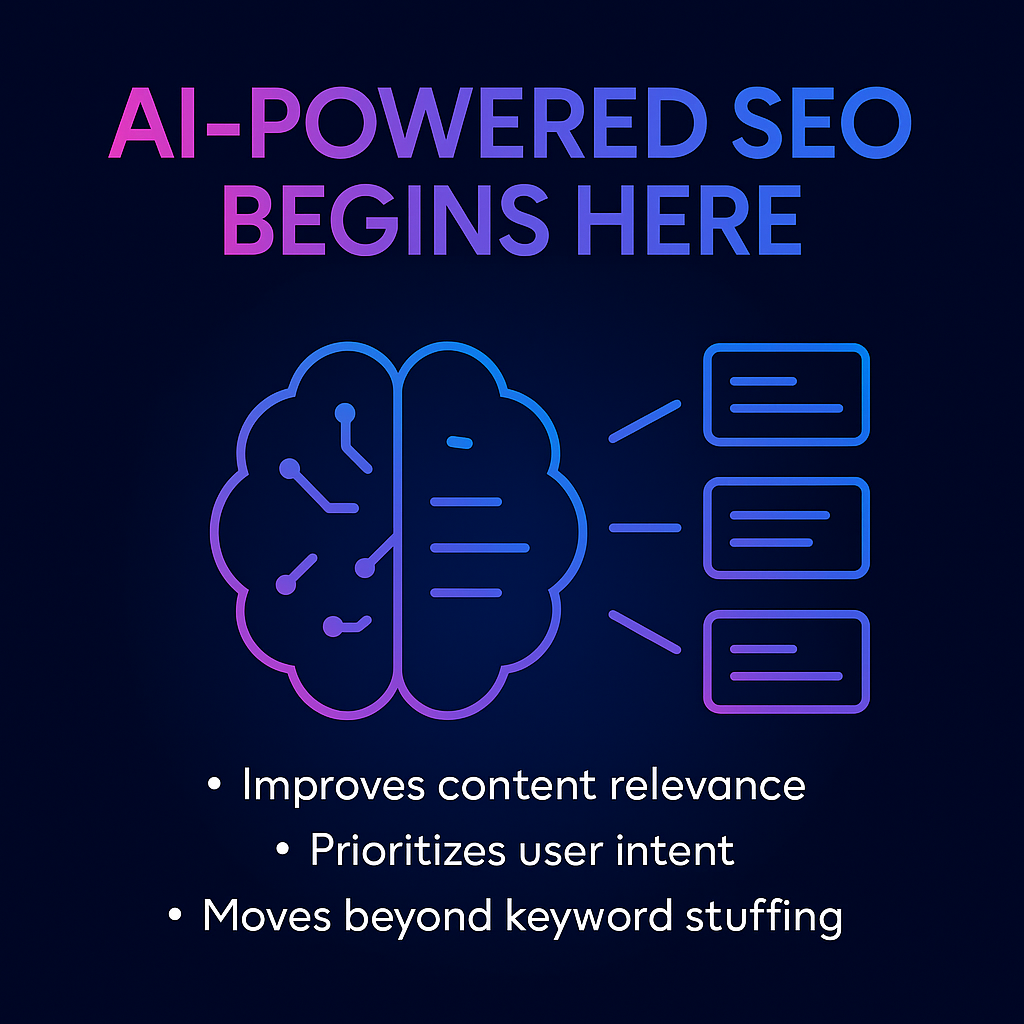
Generative AI reshapes content creation and optimization, improves content strategy and drives organic traffic. AI helps businesses to create high quality, optimized content, increase online visibility and user engagement. This shift to intelligent, automated systems is a big departure from traditional SEO practices where keyword stuffing and simple matching was enough.
The adoption of generative AI is causing a seismic shift in search practices, generative engines are prioritizing user intent and content relevance over keyword research matching. SEO is still important to increase website visibility but the strategies and tools are evolving.
E-E-A-T (Experience, Expertise, Authoritativeness, and Trustworthiness) is more important than ever to achieve higher rankings and conversions.
Large language models (LLMs) are the backbone of generative AI, they can generate coherent and contextually relevant responses. Trained on massive text data, LLMs understand and process natural language, they can generate high quality content. These models help create content that has a consistent tone, style and adaptability across topics, overall content quality improves.
LLMs allow generative engines to produce responses that resonate with the audience, increase user engagement and conversion rates. This is a big departure from traditional SEO where content creation was rigid and less adaptable.
Generative Engine Optimization (GEO) is a shift from traditional SEO practices, focusing on providing value and answering user queries rather than technical optimization alone. In generative AI, the focus is on creating quality content that is relevant and credible, moving away from keyword stuffing and focusing on user engagement metrics like time spent on the page. This way content is not only optimized for search engines but also genuinely useful to users, aligns with geo principles.
Unlike traditional search engines, generative search engines synthesize multimodal responses from multiple sources, provides a more comprehensive and relevant search experience. So businesses need to focus on creating content that is not only keyword rich but also contextually relevant and engaging. This drives more organic traffic and overall SEO strategy to generate content.
The rise of AI-powered search engines has forced a change in how SEO strategies are developed and implemented. While traditional SEO focused heavily on keyword optimization and backlinking, GEO emphasizes the importance of understanding user intent and providing direct answers to their queries. This shift requires businesses to adapt their SEO efforts to stay visible and competitive in the evolving search landscape.
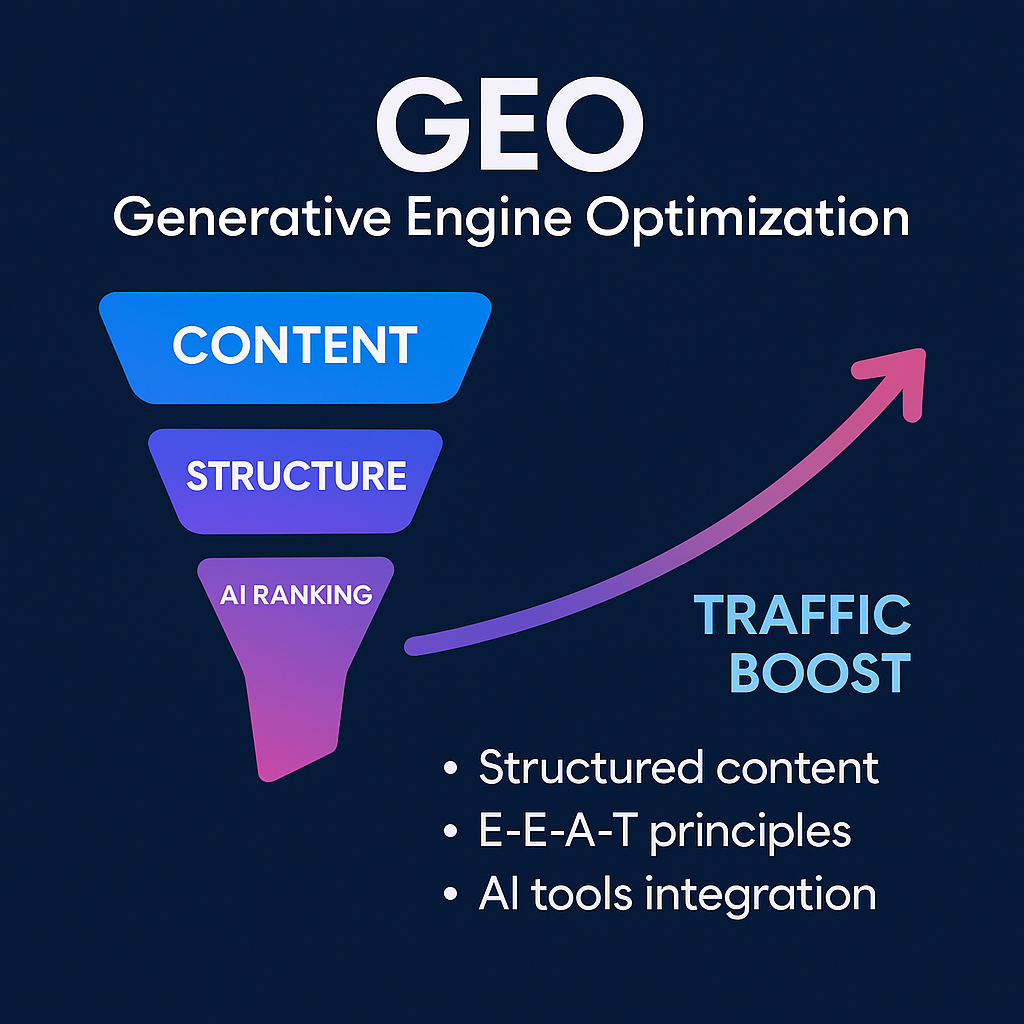
Implementing Generative Engine Optimization (GEO) involves:
Success in this environment requires focusing on these.Shared best practices between GEO and traditional SEO is using H2 headings and credible citations to optimize content. These practices ensure content is not only accessible to AI-powered search engines but also valuable to users, drives more organic traffic.
Advanced generative engines like Google’s combine text, audio, images and video to enhance search results, content optimization is more complex and multifaceted. Optimizing for AI-driven search engines means:
Microcontent like FAQs and meta descriptions increases visibility in generative search engines. Generative AI can help create content outline based on predetermined keywords, makes content creation easier and more relevant. AI tools can also help identify trending topics and questions related to specific keywords, improves content quality and user engagement.
Structured data plays a big role in increasing visibility of content in generative search engines. Schema markup helps businesses communicate additional data and context to search engine bots, makes it easier for AI to understand the content. This increases overall digital visibility and engagement of websites, so they stay visible in a competitive landscape.
Schema markup increases visibility and engagement of websites by communicating web content to search engines. This structured approach not only increases online visibility but also user engagement, drives more traffic to the site.
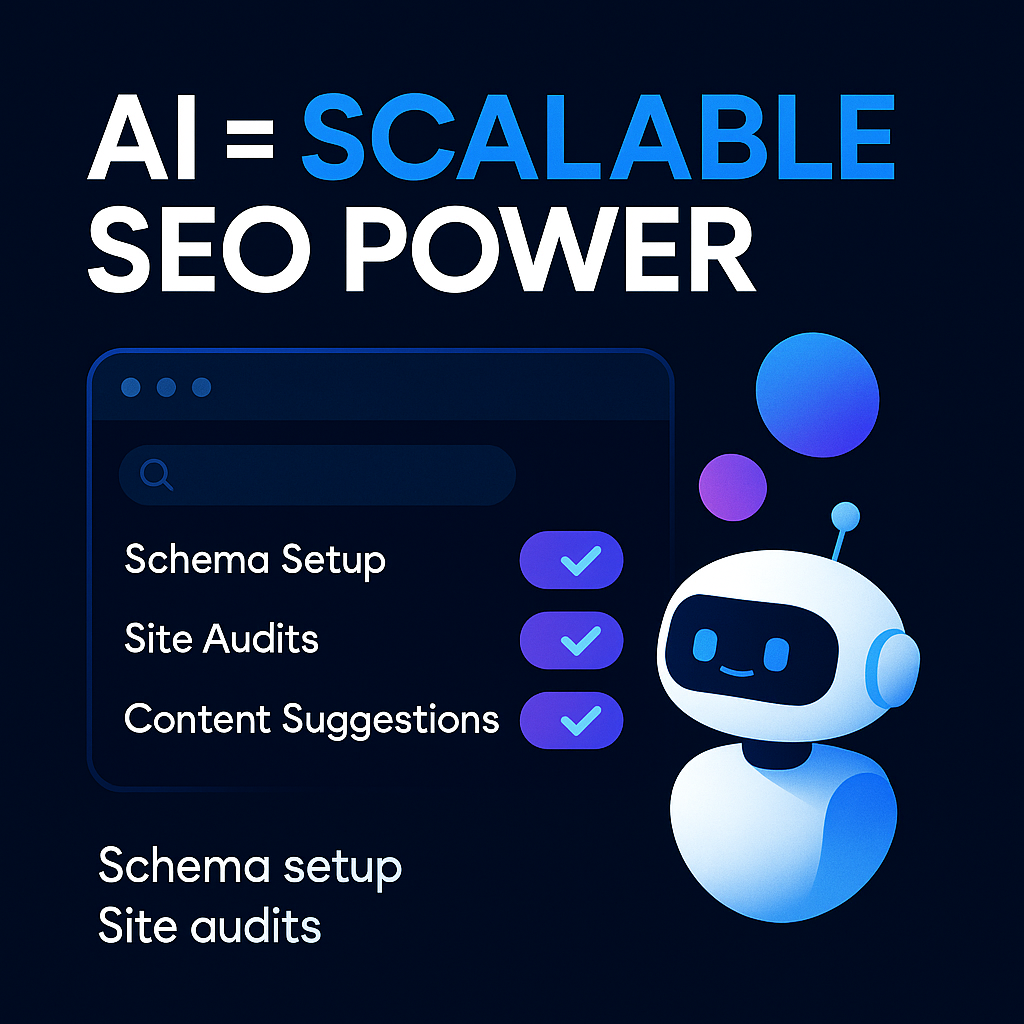
AI can automate many SEO tasks, saves time and increases productivity. Generative AI is changing SEO by:
AI impacts content creation, site architecture and real-time monitoring, it’s a must have tool for modern SEO strategies. AI tools streamline SEO efforts, helps businesses stay competitive and visible in a fast changing digital landscape, especially with ai models, ai overviews and ai search.
AI agents play a big role in automating recurring SEO tasks, saves time and increases productivity. These agents can automate tasks like keyword analysis and content brief creation, makes workflow more efficient. Generative AI automates proofreading, suggests improvements to grammar and clarity, ensures high quality output.Tools like Gumloop allows users to create AI agents for specific SEO workflows without needing technical skills. This democratization of AI tools allows businesses of all sizes to leverage AI in their SEO strategies, drives more organic traffic and better performance.
Microcontent like meta tags, meta descriptions, FAQs and Q&A are essential to engage users and SEO. AI can generate microcontent fast and at scale, so businesses can maintain online presence without overwhelming resources. Key strategies to optimize content for AI-driven tools is to make it persuasive, authoritative and rich in relevant keywords and featured snippets statistics.
Make content more readable with clear and concise language and scannable paragraphs with clear headings. This way AI-generated content is not only high quality but also user friendly, drives better engagement and higher conversion rates.
Generative AI is changing how marketers build online identity and audience engagement through digital marketing. For local SEO, this technology offers new ways to connect with local customers. Focusing on AI-era local SEO strategies ensures businesses stay visible and relevant in their local market.
Effective local SEO strategies includes optimizing websites, Google Business Profiles and leveraging authentic images and reviews. These practices not only increases local visibility but also builds trust and engagement with the community, drives more foot traffic and online conversions.
Accurate and comprehensive information like business hours, location, contact details and services is crucial for Google Business Profiles. Keeping information up to date ensures potential customers can find and engage with your business. Updating business hours and interacting with customer feedback can significantly improve engagement and customer trust.
Verifying your business profile is important as it confirms your authority and increases local search visibility. Interacting with customer feedback not only improves business visibility but also builds long term relationship with the community, enhances overall brand perception.
Visual content that represents real experiences can greatly impact local search rankings. Authentic visuals is favored by AI for local SEO as it provides a more accurate representation of the business. Positive engagement with customer reviews can also improve business ranking in local search results.
User generated digital content like reviews and images increases business trustworthiness and visibility. Authentic content enhances user engagement and brand perception, drives more traffic and conversions.
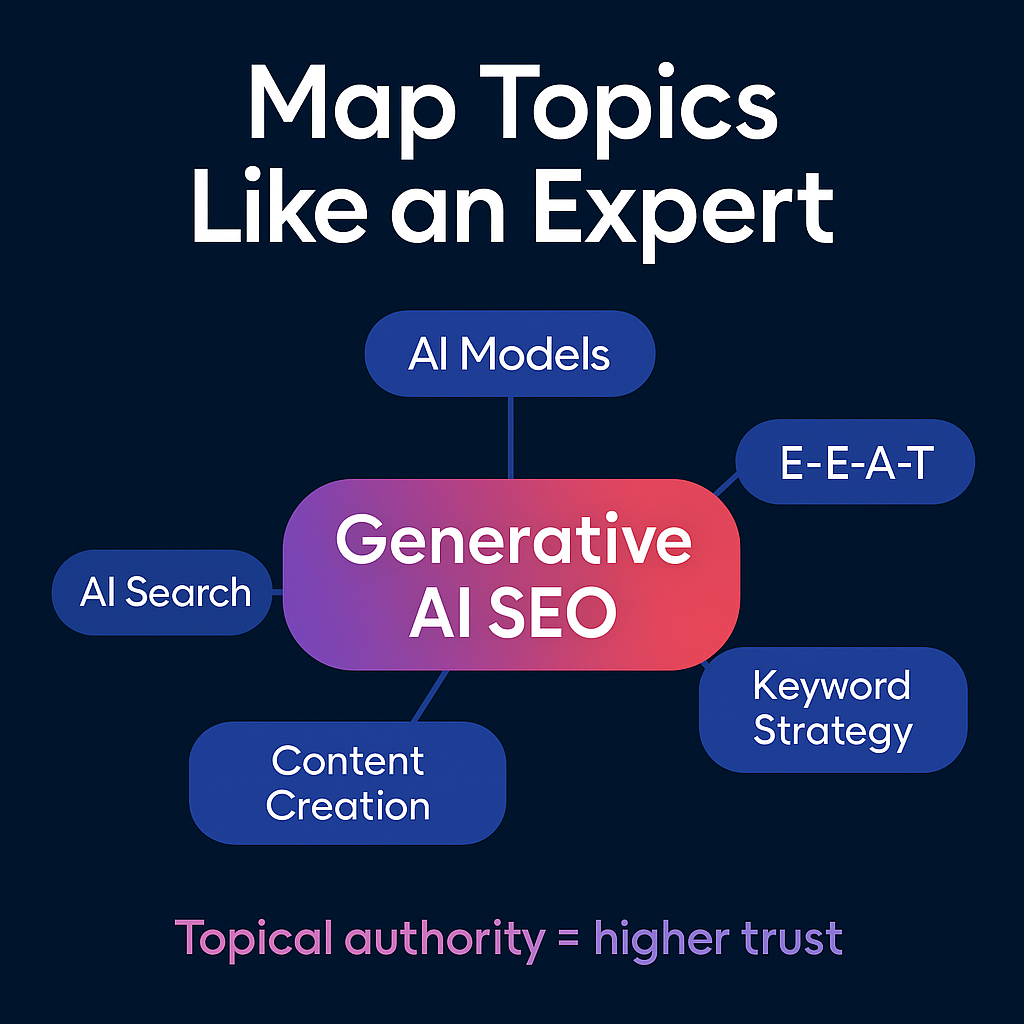
Entity mapping allows search engines to understand relationships between topics and content relevance. Building topical authority ensures content is seen as credible and authoritative, improves overall SEO performance.
Semantic coverage is about the broader meanings and contexts of topics not just specific keywords. By including relevant keywords and clear language businesses can increase content visibility and relevance. This way content resonates with users and answers their queries effectively.
Content should cover a wide range of related topics and contexts to show expertise and engage users with content. This strategy not only improves user engagement but also helps in building topical authority, makes content more valuable and authoritative in the eyes of search engines by tailoring content.
E-E-A-T stands for Experience, Expertise, Authoritativeness, and Trustworthiness and these guidelines are crucial for content in generative search results. Google emphasizes the importance of E-E-A-T principles and favors high quality content that follows these guidelines in its rankings. Including E-E-A-T principles in content creation makes content more credible and authoritative.
Improving semantic coverage is key to building topical authority. This means conducting extensive research and considering the author’s personal experience when creating content, including insights from content writers. By following E-E-A-T guidelines businesses can ensure content is not only informative but also trusted and authoritative.
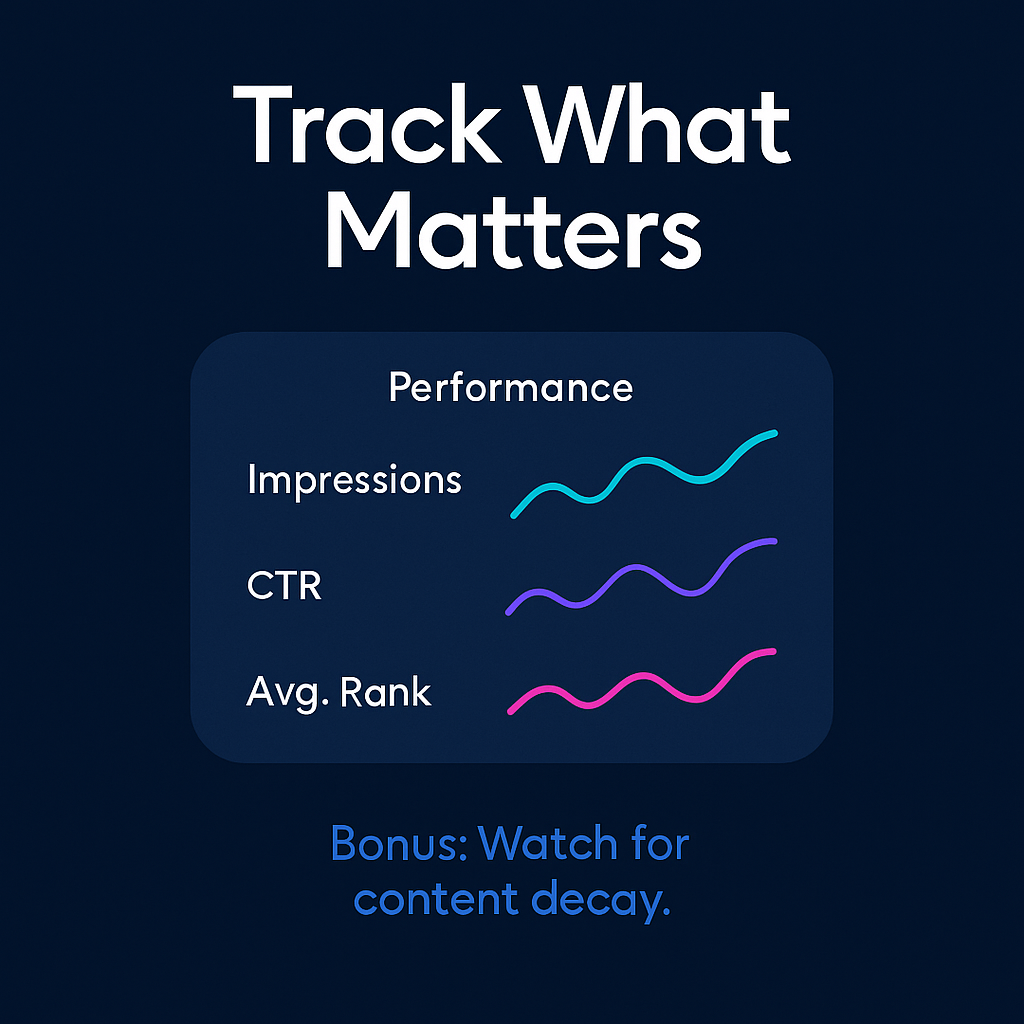
To monitor GEO success key metrics like search impressions, click-through rates and average position should be tracked. Identifying content decay which is the gradual decline of SEO content is crucial for maintaining and improving SEO efforts.
Monitoring GEO ensures ongoing success and adaptability in the ever changing search landscape. Regularly evaluating performance and making necessary adjustments helps businesses stay ahead of the competition and drive organic traffic.
AI can continuously monitor SEO, detect issues, explain problems and help prioritize fixes. This allows for immediate detection of SEO issues, provides insights to prioritize fixes. Real-time SEO monitoring with AI offers faster response, reduces risk and helps maintain momentum on large sites.
AI-powered real-time monitoring allows businesses to proactively manage their SEO strategies, keep content optimized and relevant. This proactive approach helps maintain online visibility and drive more organic traffic.
Customised impression metrics for generative engines can give insights into GEO effectiveness. Key factors to improve subjective impressions in GEO are:
Tracking SEO track rankings and user engagement metrics is essential for Generative Engine Optimisation (GEO).
Using the right metrics and understanding the factors that affect engagement can greatly improve SEO and content effectiveness. By tracking these metrics regularly businesses can make informed decisions and improve SEO efforts.
In summary, mastering generative AI SEO means understanding the technology, implementing GEO strategies, using AI tools and monitoring performance. By focusing on high quality, structured content and following E-E-A-T guidelines businesses can increase online visibility and drive more organic traffic. Get ahead in the digital game with generative AI.
Generative Engine Optimisation (GEO) optimises content for AI-powered search engines by prioritising quality and user engagement over traditional keyword strategies. This means content is accessible and valuable to both users and search algorithms.
Large Language Models (LLMs) help in content creation by generating coherent and contextually relevant responses, making the overall content better and more relevant.
Structured data is important for SEO as it allows search engines to understand your content better which can lead to better visibility and more user engagement. Implementing structured data can boost your search performance.
E-E-A-T guidelines are about Experience, Expertise, Authoritativeness and Trustworthiness in creating high quality content that search engines favour. Following these principles makes your content more credible and visible online.
AI tools automate SEO by automating keyword analysis, content brief creation and proofreading, making it more efficient and productive.